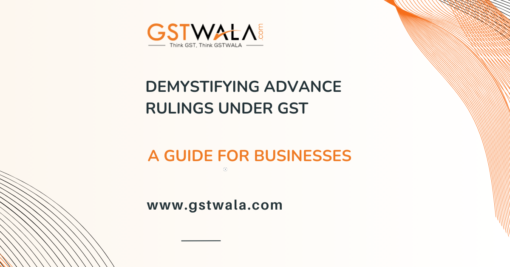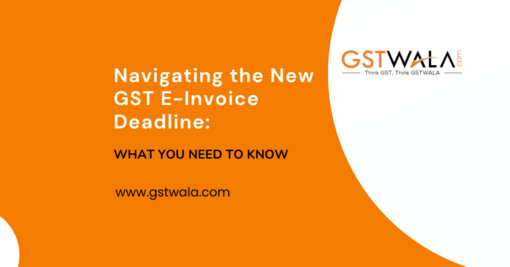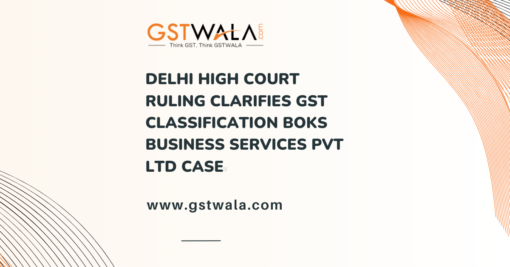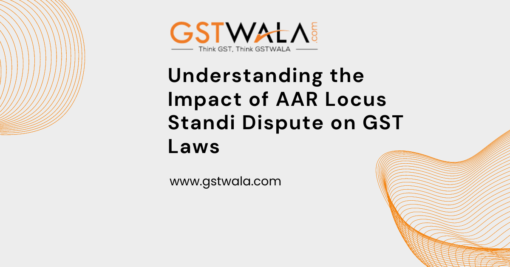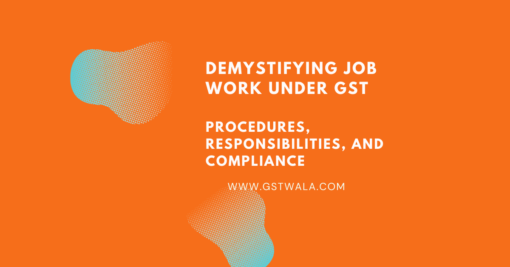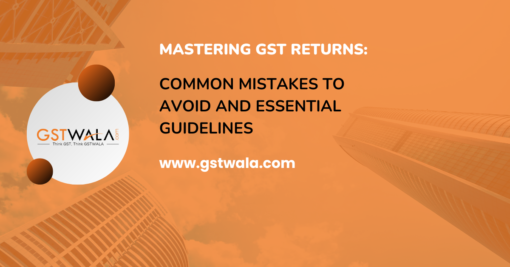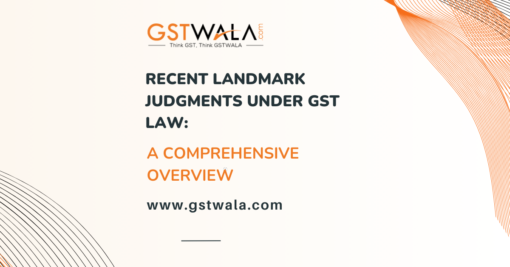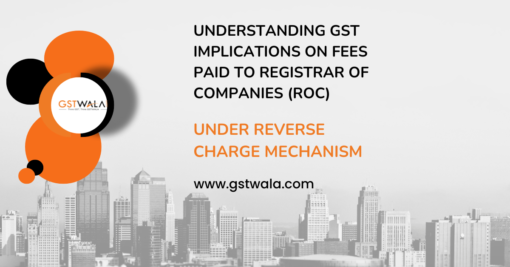
Understanding GST Implications on Fees Paid to Registrar of Companies (ROC) under Reverse Charge Mechanism
Since the inception of the Goods and Services Tax (GST) regime in the fiscal year 2017-18, businesses across India have grappled with understanding and adhering to its multifaceted provisions, one of which is the Reverse Charge Mechanism (RCM). Among the myriad concerns and complexities surrounding GST, one area that has stirred considerable debate and uncertainty is the taxation of fees remitted to the Registrar of Companies (ROC). In this comprehensive analysis, we aim to unravel the intricacies of GST applicability under the Reverse Charge Mechanism concerning ROC fees, elucidating ambiguities and shedding light on its legal ramifications and practical implications.
Applicability of RCM in Services:
The introduction of GST revolutionized the taxation landscape in India, ushering in a paradigm shift in the taxation of goods and services. Central to this overhaul was the implementation of the Reverse Charge Mechanism (RCM), a mechanism designed to shift the responsibility of tax payment from the supplier to the recipient under specified circumstances. According to Notification No. 13/2017 (R) of the Central Goods and Services Tax (CGST) Act, services rendered by entities such as the Central Government, State Government, Union territory, or local authority to a business entity are encompassed under the purview of the Reverse Charge Mechanism, albeit with certain exemptions and exceptions.
This provision effectively mandates that in scenarios where services are procured from specified governmental bodies or authorities, the recipient business entity assumes the responsibility of discharging the applicable GST liability, rather than the service provider. However, it is imperative to note that this obligation is not absolute and is subject to the nuances outlined within the relevant notifications and legislative provisions.
The inclusion of services provided by governmental bodies under the ambit of the Reverse Charge Mechanism underscores the government’s intention to broaden the tax base and ensure equitable distribution of tax liability. By necessitating the payment of GST by the recipient of services, irrespective of whether the service provider is a taxable entity, the Reverse Charge Mechanism serves as a pivotal tool in streamlining tax compliance and curbing tax evasion.
However, it is pertinent to recognize that while the Reverse Charge Mechanism aims to simplify tax administration and enhance transparency, its implementation has posed challenges and engendered uncertainties for businesses, particularly concerning the interpretation and application of its provisions in diverse scenarios.
In the subsequent sections of this article, we shall delve deeper into the specific implications of the Reverse Charge Mechanism as it pertains to fees remitted to the Registrar of Companies (ROC), elucidating the legal standing, practical implications, and potential pitfalls that businesses must navigate in ensuring compliance with GST regulations.
Defining Government Entities: To understand the applicability of RCM to ROC fees, it’s crucial to define “Central Government,” “State Government,” and “Local Authority.” According to the General Clauses Act and relevant constitutional articles, the Central Government refers to the President of India and entities under his authority. Similarly, State Government refers to the Governor and relevant entities.
Registrar of Companies: A Government Body: The Registrar of Companies (ROC) operates under the Ministry of Corporate Affairs (MCA), established by the Central Government. As per the Companies Act 2013, ROC offices are designated by the Central Government, indicating their status as government entities.
GST Taxability of ROC Services: Under Section 2(17) of the CGST Act, activities undertaken by the Central Government, State Government, or local authority as public authorities constitute business for GST purposes. However, activities specified in Schedule III or those notified as non-business activities are exempt from GST.
Clarification on Regulatory Bodies: Despite the Government’s view on regulatory bodies not falling under the RCM purview, ambiguity persists. While FAQs from the GST department suggest regulatory bodies aren’t considered part of the government, this stance lacks statutory backing and may lead to interpretation issues.
Analyzing the legal framework and GST provisions, fees paid to ROC for services rendered are deemed taxable under GST. As ROC functions as a government entity under the MCA’s jurisdiction, RCM applies to fees exceeding specified thresholds. However, clarity is needed regarding the classification of ROC as a regulatory body vis-à-vis its taxation under GST.
Ready to navigate the complexities of GST with confidence?
Let’s unravel the mysteries together.
We are just a click away info@gstwala.com

